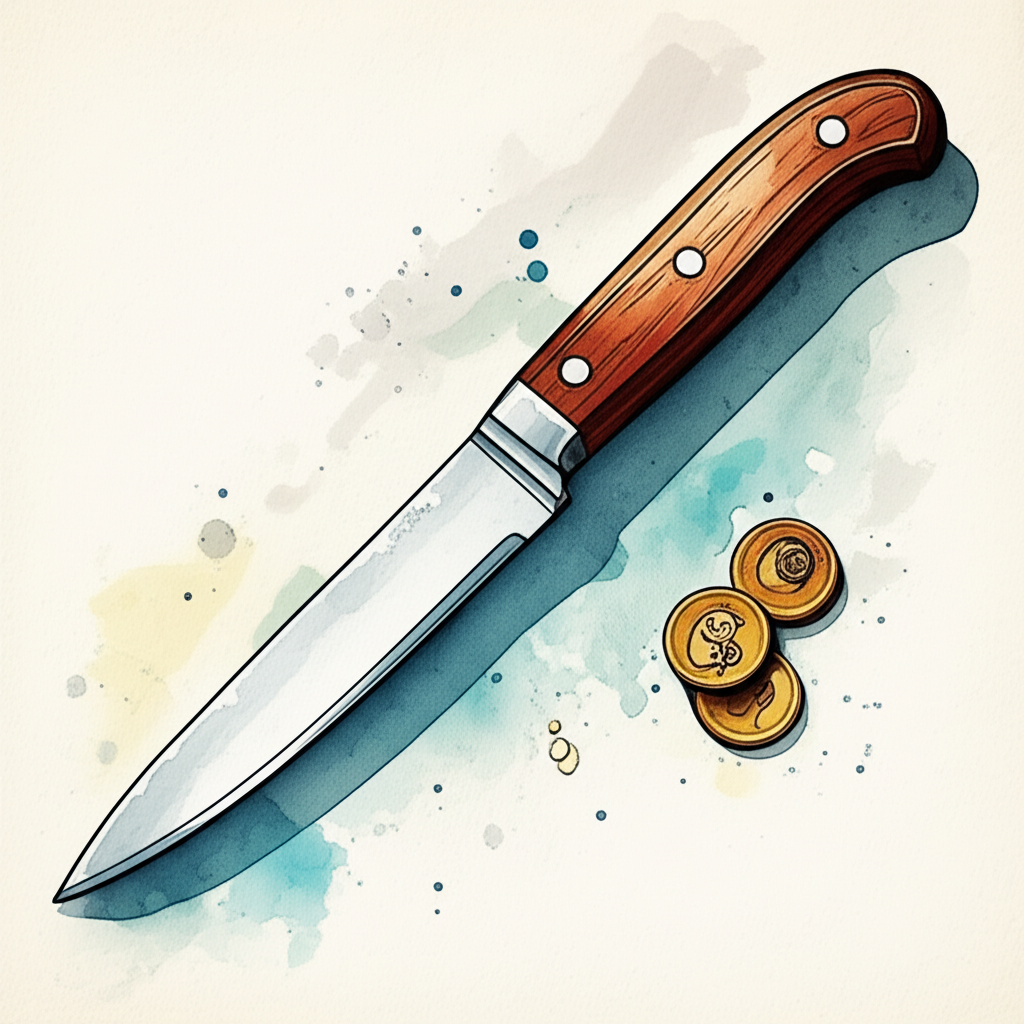
The superstition surrounding knives and scissors as gifts is a deeply rooted belief that transcends cultures and centuries. The core idea is that presenting someone with a sharp object like a knife or a pair of scissors will inevitably sever the relationship between the giver and the recipient. Understanding this superstition requires delving into its historical context, cultural interpretations, and its evolution over time.
Historical Background: One of the earliest documented accounts of this superstition can be traced back to medieval Europe. A valuable source for understanding such beliefs is a 15th-century French manuscript titled Les Évangiles des Quenouilles (The Gospel of the Distaff), circa 1470. This document, compiled from the wisdom of six peasant women, provides a rare glimpse into the folklore of the time. Before this period, such knowledge was primarily transmitted orally, making Les Évangiles des Quenouilles a crucial record of medieval beliefs. A 1507 English translation, The Gospelles of Dystaues or The Distaff Gospels, further disseminated these superstitions, including the one concerning sharp objects as gifts.
Cultural Beliefs: The belief stems from the symbolic nature of knives and scissors. These implements are designed to cut and separate, leading to the association with severing bonds between people. The Distaff Gospels explicitly states that gifting a knife to a lover on New Year’s would cause their love to diminish. The sharp edge is interpreted as a symbol of potential harm or a foreshadowing of a break in the relationship. The superstition is not just about the physical act of giving the object, but the implied intent or potential outcome.
Evolution of the Superstition: Initially, the superstition primarily focused on knives. The early references in The Distaff Gospels specifically mention knives and their negative impact on relationships. However, by the early 18th century, the superstition expanded to include scissors. Scissors, with their dual blades designed to cut, were also seen as capable of severing ties, not just between people, but also potentially impacting their friendships and overall fortunes. This expansion highlights how superstitions can evolve over time, adapting to include similar objects that carry the same symbolic weight.
Modern Interpretations: While the belief might seem archaic, the superstition persists in modern times, albeit often in a less rigid form. Many people still avoid giving knives or scissors as gifts, or if they do, they adhere to a specific workaround: the recipient must give a coin in return. This exchange is seen as a symbolic “payment” for the item, transforming the gift into a purchase, thereby neutralizing the negative effect. The coin serves as a symbolic countermeasure, preventing the “cutting” of the relationship. Although not universally followed, the persistence of this practice underscores the enduring power of superstition in shaping human behavior and social interactions.